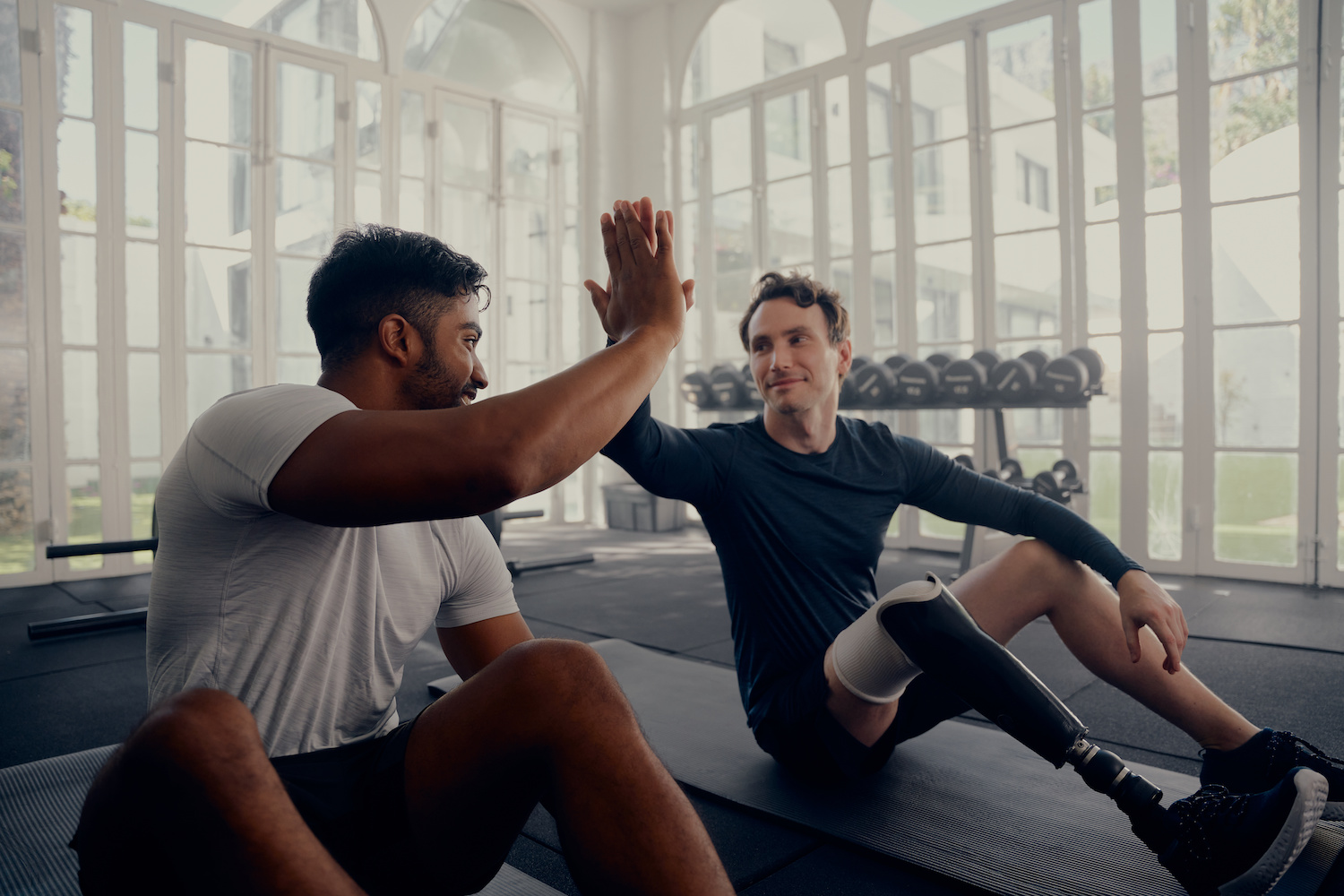Do Less Harm
We start wit h a foundation of anti-oppression and anti-racist framework and values
- Knowledge of trauma
- Inclusivity
- Practitioner self awareness
Then Do Good
We build a trauma-informed protocol of action and learning/un-learning
- Responsivity in Realtionship
- Stance in curiosity
- Interoceptive awareness
- Agency, autonomy, and choice
- Healing relationships & community
Approximately 70% of the world’s population have been exposed to a traumatic life event. The resulting mental health problems represent a major challenge to public mental health services, globally.
Experiences of trauma profoundly change our relationship to our body. Yet, few treatments exist for complex trauma survivors, making healing exponentially more difficult for them.
Being trauma-informed helps everyone.
1. (Benjet et., 2016, Kessler et al., 2017)
2. (Sara & Lappin, 2017)

IMPACT OF FITNESS CULTURE
Historically, much of “fitness culture” has promoted language and habits that reinforce ableism, racism, fatphobia, eliteism, classism, body shaming/policing, LGBTQIA+ hatred and more—all under the guise of wellness.
Ilya Parker, founder of Decolonizing Fitness
MENTAL HEALTH IMPACT
Fitness is rapidly growing beyond physical aesthetics into the world of mental health and trauma healing as people realize the profound benefits.
“My PTSD means that I jump at sudden loud noises, so things like dumbbells dropping, slam balls or loud music were not easy for me to cope with. I didn’t like the TRX because I needed to trust it to hold my weight and I had big problems with trust. I also need things to be the same, in a routine, so I needed the exact same spot in the gym each week.”
- Client of TIWL Coach




